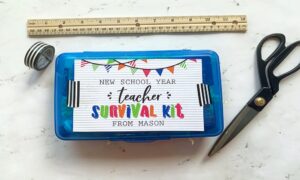
In the dynamic landscape of modern education, teachers constantly seek innovative ways to enhance their teaching methodologies. Amidst many options, specific educational tools are indispensable for educators striving to make their teaching more effective and engaging. Here, we explore ten essential resources redefining the art of education in the 21st century.
1. Interactive Whiteboards
Gone are the days of traditional chalkboards. Interactive whiteboards have revolutionised the classroom by allowing educators to present information dynamically and interactively. These boards and educational software enable teachers to create engaging lessons catering to various learning styles.
2. Learning Management Systems (LMS)
Platforms like Moodle and Blackboard serve as a one-stop-shop for managing educational courses online. They provide a structured environment where educators can upload course materials, conduct assessments, and foster student interaction in a controlled, digital space.
3. Educational Apps
With the rise of smartphones and tablets, educational apps have become a significant part of learning. Apps like Duolingo for language learning or Khan Academy for various subjects offer interactive and personalised learning experiences.
4. Online Collaboration Tools
Tools like Google Classroom and Microsoft Teams have become essential in facilitating collaboration. They allow students to work together on projects remotely, fostering a sense of teamwork and cooperation, even in a digital environment.
5. Digital Portfolios
Digital portfolios are an excellent way for students to showcase their work and progress. Platforms like Seesaw or Portfolium help students build a digital archive of their learning journey, which is invaluable for self-assessment and showcasing achievements.
6. Classroom Response Systems
Tools like Kahoot! and Socrative engage students in real-time quizzes and polls, making learning fun and interactive. These systems make lessons more engaging and provide immediate feedback to teachers.
7. Video Conferencing Platforms
In an era where remote learning has gained prominence, platforms like Zoom and Skype have become essential. They allow real-time interaction between teachers and students, making distance learning more personal and practical.
8. Educational Podcasts and Videos
Resources like TED-Ed and educational YouTube channels provide a wealth of knowledge in an easily digestible format. They serve as an excellent supplement to traditional teaching materials.
9. E-books and Online Libraries
The accessibility of e-books and online libraries has transformed how students access reading materials. Platforms like Project Gutenberg offer many free books, making literature more accessible.
10. Assessment Tools
Finally, digital assessment tools like Turnitin and Google Forms have streamlined the process of conducting tests and assignments. These tools save time and provide insights into student performance through detailed analytics.
In Conclusion
These ten resources transform the educational landscape, empowering educators to deliver high-quality, engaging, and practical instruction. By integrating these educational tools into their teaching strategies, educators can ensure that their students are well-equipped to thrive in the ever-evolving world of learning.



